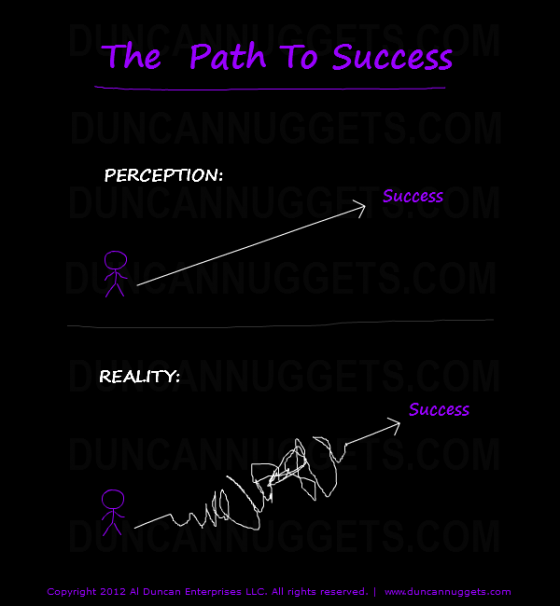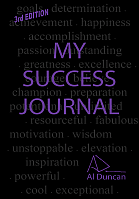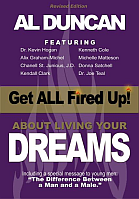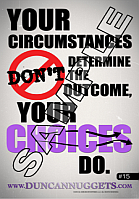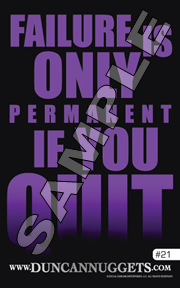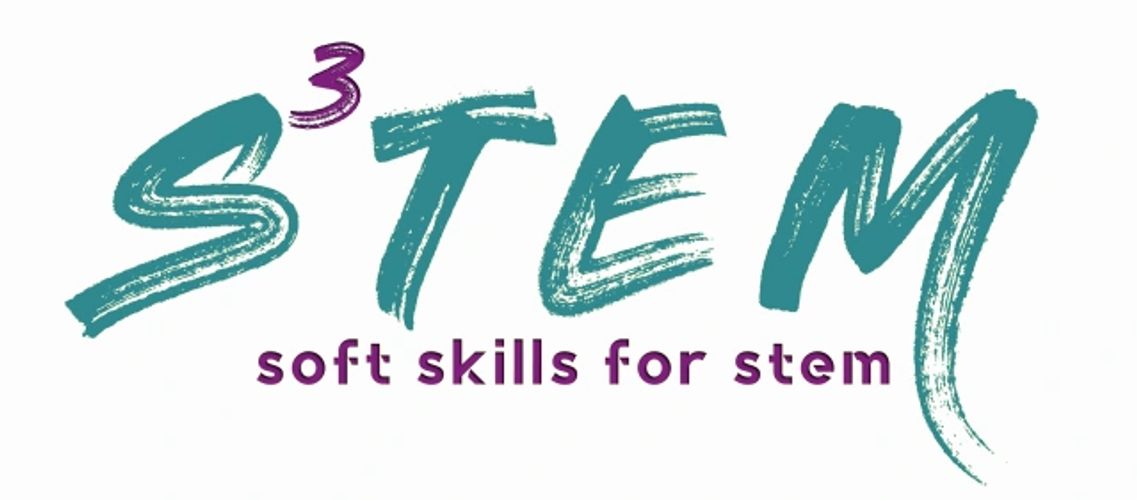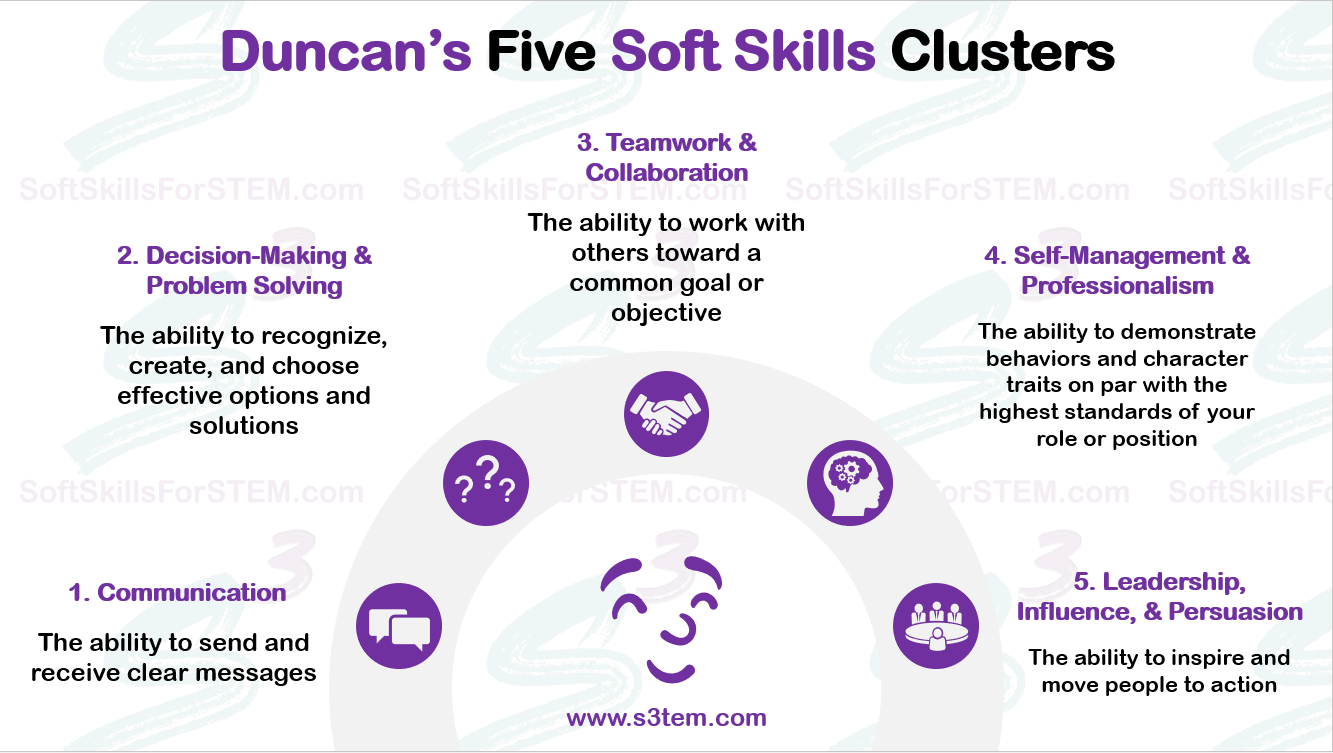[POSTER] The Path To Success
Man…I wish I figured this out sooner. The path to success looks like spaghetti.
- Topics: Character DevelopmentGrit, Perseverance, DiligencePersonal DevelopmentPostersProfessionalTeenYoung Adult
The Economic Cost Of A Dropout
Teaching and inspiring opportunity youth to improve their socioeconomic and educational outcomes is a noble cause as well as an investment in the economic well-being of our country.
According to Henry M. Levin (William Heard Kilpatrick Professor of Economics and Education, Teachers College, Columbia University) opportunity youth are young people that are not accumulating human capital in school or college nor accumulating labor market skills by working.
- Topics: Young Folk Today
[VIDEO] Duncan Nugget® #320: Squabbling Over Crumbs
Three birds were sitting on a branch. They were starving. A bakery truck passes by and off falls a loaf of bread. When the loaf hits the ground a piece of the crust breaks off into crumbs.
New Trends In Education
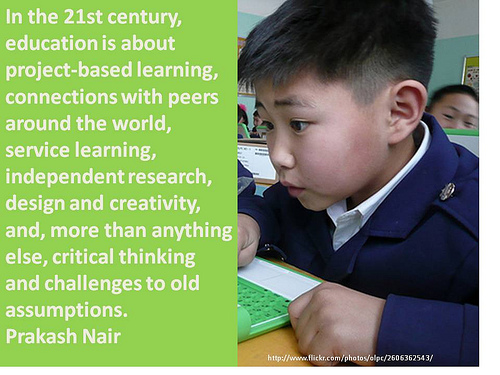 There is some great info in this article: 8 Important Education Trends in Generation Z
There is some great info in this article: 8 Important Education Trends in Generation Z
But… I really wish some demographer or guru would come up with a better name than Generation Z. “Digital Natives” works, but it overlaps part of the Millennial Generation (Gen Y).
[VIDEO] Duncan Nugget® #42: The Coffee Bean
If people experience the exact same thing, why do they have different versions of reality?
I’ll show you.
Initially, a coffee bean is green. Once harvested and roasted, it turns brown.
Next, someone grinds up some beans, puts the coffee grounds in a filter, runs hot water over them, and voila!—countless variations of coffee—cappucino, frappacino, black, or whatever—a perfect cup of coffee for whomever is drinking it.
Can anyone re-create the original coffee bean?
Of course not! Communication and reality work the same way.
You process reality through filters like your beliefs, values, and moods. You distort, delete, and generalize information to create the perfect cup of reality for you. Think about that.
Exceptional communicators learn to understand the filters that people use.
Million-Dollar Question:
When it comes to communication, can you take a coffee bean and make the perfect cup of coffee for you AND for others?
DISCUSSION QUESTIONS
1. Think about a time when you and someone experience the same thing, but both of you felt differently about what happened? Describe the situation. What factors—such as personality, experience, culture, emotions, etc.—caused you to see things differently?
2. Have you ever said something to someone that he or she took the wrong way? What happened? What factors caused the misunderstanding? What, if anything, will you do differently in the future?
3. What are 3 questions you can ask someone to make sure that you understand exactly what he or she is saying? Do you actually use these questions when you are communicating with people? If yes, provide an example. If not, how will you remember to use them in the future?
- Topics: Communication SkillsDuncan NuggetsPersonal DevelopmentProfessionalSoft SkillsTeenVideosYoung Adult
How Much Does College Cost?
Do you want to know how much college cost? Here’s a cool calculator I found that will tell you the cost of any college in the U.S.
[VIDEO] How To Start Your Talk Or Speech
This is a video from my former site for professional speakers, but there are great tips in here for anybody that has to give a speech, talk, or presentation of any type.
